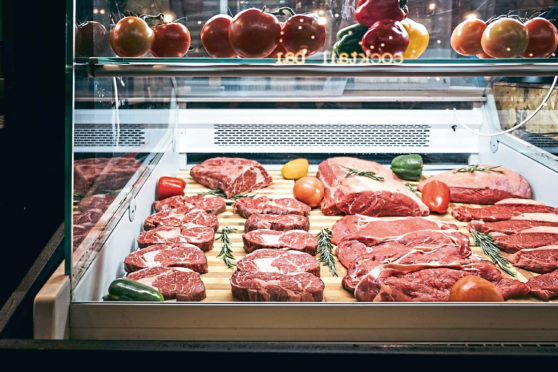The number of people limiting their meat consumption has fallen during the pandemic, according to new figures.
Data from market research body Mintel suggests the number of Brits actively limiting the meat they eat, or not eating meat at all, fell from 51% in 2019 to 41% last year.
Figures also show an 18% rise in sales of processed meat products last year, with the market worth an estimated £3.7 billion.
Sales of bacon, sausages and burgers were up 18%, 20% and 26% respectively, driven by a rise in cooking from scratch and the shift towards eating at home during the pandemic, while people having lunches at home helped drive a 9% increase in sales of cooked meat and poultry, such as ham, during the year.
Mintel said stockpiling during the Covid-19 crisis resulted in a resurgence in sales of canned meat, up 22% on the year.
It said although the move to reduce or stop meat consumption had faltered during the pandemic, the number of Brits who acknowledge the impact eating meat has on the environment increased to 42% in 2020, from 25% in 2018.
“Prior to the Covid-19 outbreak the meat reduction trend was gaining considerable momentum,” said Mintel’s global food and drink analyst, Edward Bergen.
“The huge disruption, uncertainty and stress caused by the pandemic have caused a relaxation around some health and ethics-driven habits among many consumers.
“It is not surprising that meat reduction has taken a temporary back seat, particularly given the increased desirability of familiar comfort food and that meat is seen to really deliver here.”
He said the setback for the flexitarian movement was likely to be short-lived and the red meat sector would have to contend with an anticipated “flurry of new plant-based products” coming to the market after the pandemic eases.
“However, meat substitutes must really deliver on the perceived benefits of not eating meat to reap the rewards from this trend,” Mr Bergen added.
